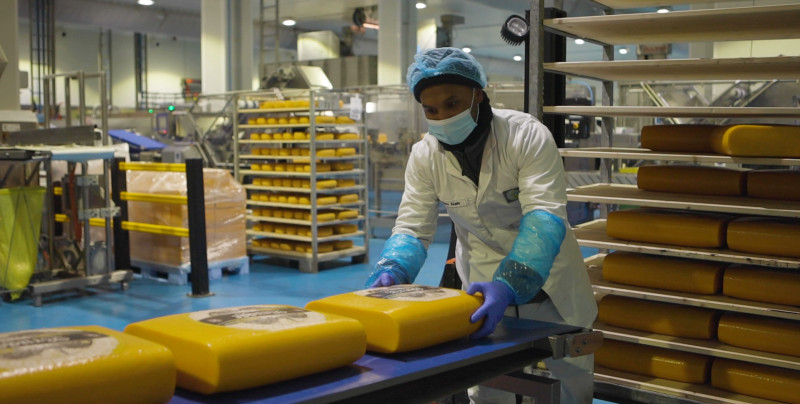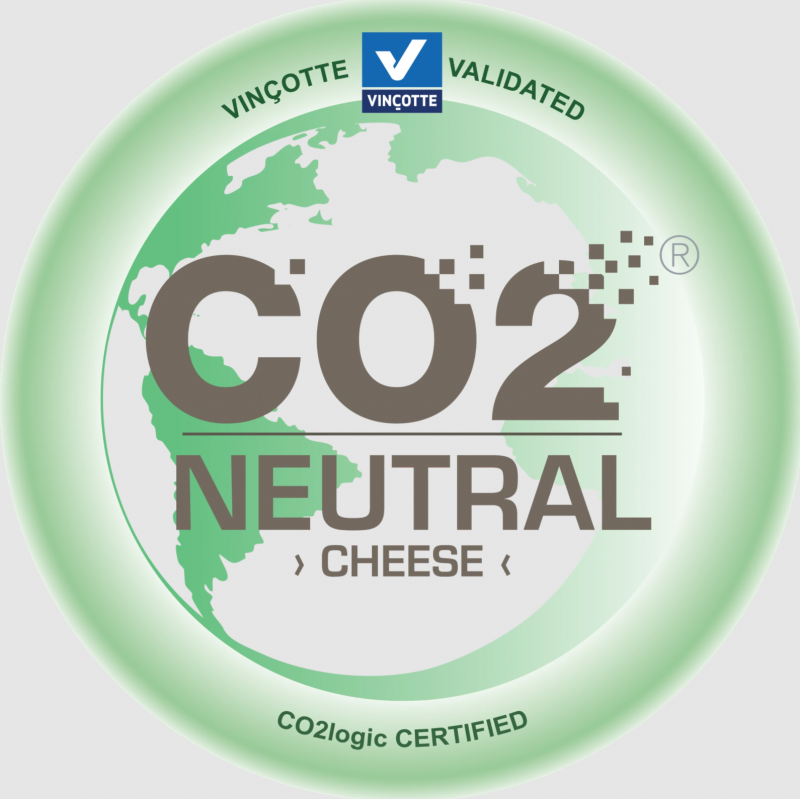At the start of 2022, dairy cooperative Milcobel will be bringing its range of Brugge cheeses onto the market, completely CO2-neutral. "Brugge Kaas does not only provide high-quality, locally produced and tasty cheese, we also drastically reduce our ecological footprint through CO2 reduction and compensation", they say. This makes Milcobel a trendsetter in the Belgian cheese market.

Sustainability high on the agenda
Thijs Keersebilck, Managing Director Consumer Products & Service at Milcobel: "The issue of sustainability is high on our customers' agendas. Consumers, too, are more concerned than ever about what they eat and where it comes from. By offering a CO2-neutral cheese, eco-conscious consumers can make a more environmentally-friendly choice within the cheese range."

A pragmatic approach throughout the chain
What steps did Milcobel take to claim the label of CO2-neutral cheese? Firstly, all greenhouse gas emissions (CO2, methane, nitrous oxide) in the chain were calculated 'cradle to gate', from cow to cheese. "Today, more than half of our dairy farmers are already using renewable energy, and two-thirds are implementing energy-reducing measures. In addition, we are participating in all kinds of pilot projects with the ILVO research institute on reducing methane emissions from cows and storing CO2 in grassland," says Thijs. "We focus on raising awareness and stimulate more environmentally friendly projects through a sustainability bonus."
Producing more energy-efficient
In the production sites, Milcobel reduced the energy efficiency per kilogram of cheese by 23% during the last 5 years. The objective is to further reduce the emissions of the production process by 35% by 2035. Energy-saving processes and further efficiency improvements will contribute to this. Combined cogeneration plants provide more sustainable energy.
CO2: compensate as well as reduce it
However, a completely CO2-neutral production throughout the chain is virtually impossible. The remaining CO2 emissions are therefore compensated through a Gold Standard certified windmill project in India in cooperation with CO2LOGIC. "We would have liked to support a local project, but in Europe and Belgium carbon farming is still in its infancy. The regulatory framework is lacking, as are agreements on measuring, monitoring and compensation. Abroad, they are more advanced in this aspect. So these are plans for the future," says CEO Nils van Dam.
Commitment to circularity
Besides focusing on the climate, Milcobel is also increasingly going circular. Approximately half of the required water is extracted from milk processing and then purified and upgraded to drinking water quality, after which it is used, for example, to clean equipment. Milcobel also continues to work on more sustainable packaging. "In the past 3 years, we used 23% less plastic for our cheese packaging," confirms Thijs. "By 2023, all of our cheese packaging must be 100% recyclable and the percentage of recycled plastic packaging must increase even further."

